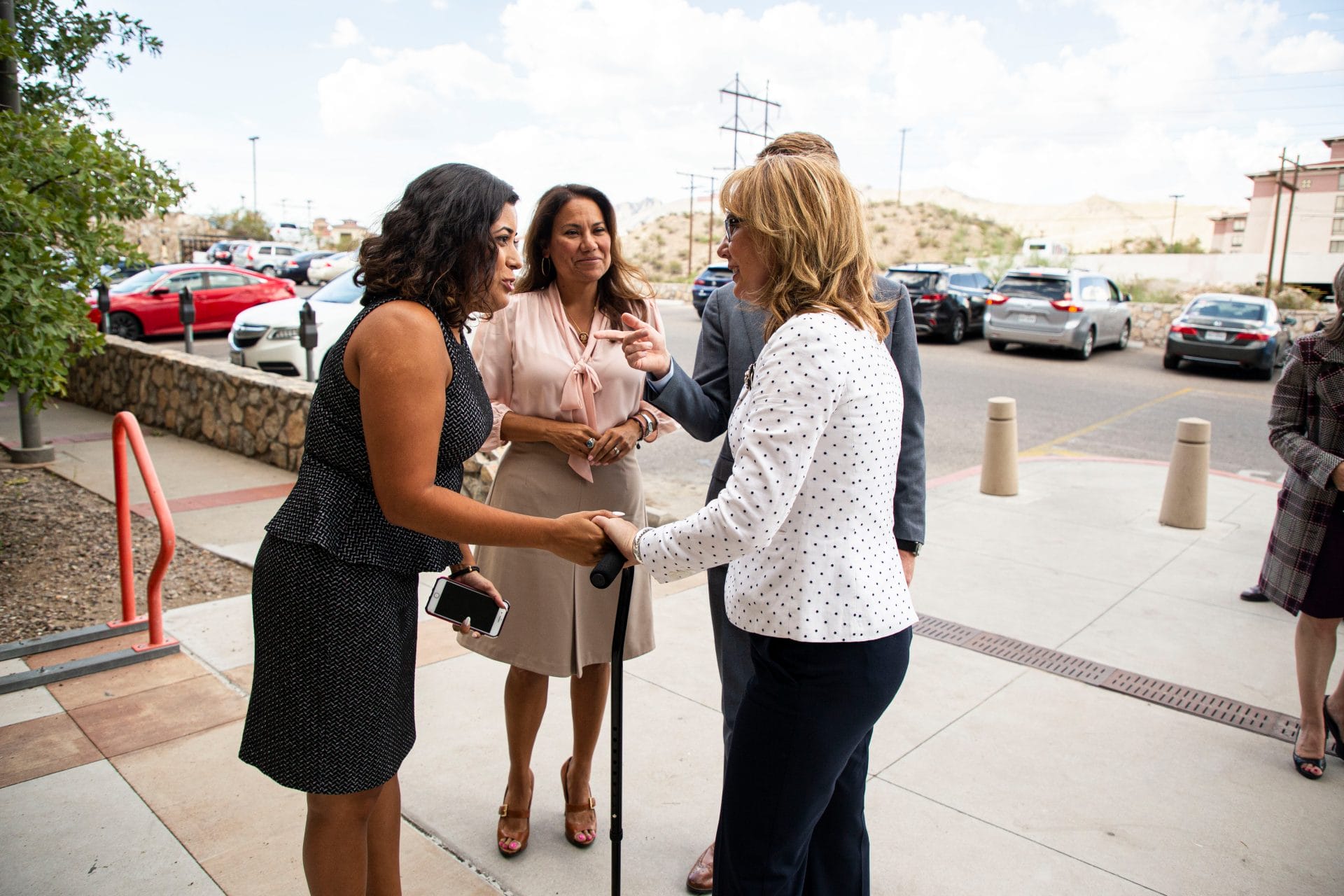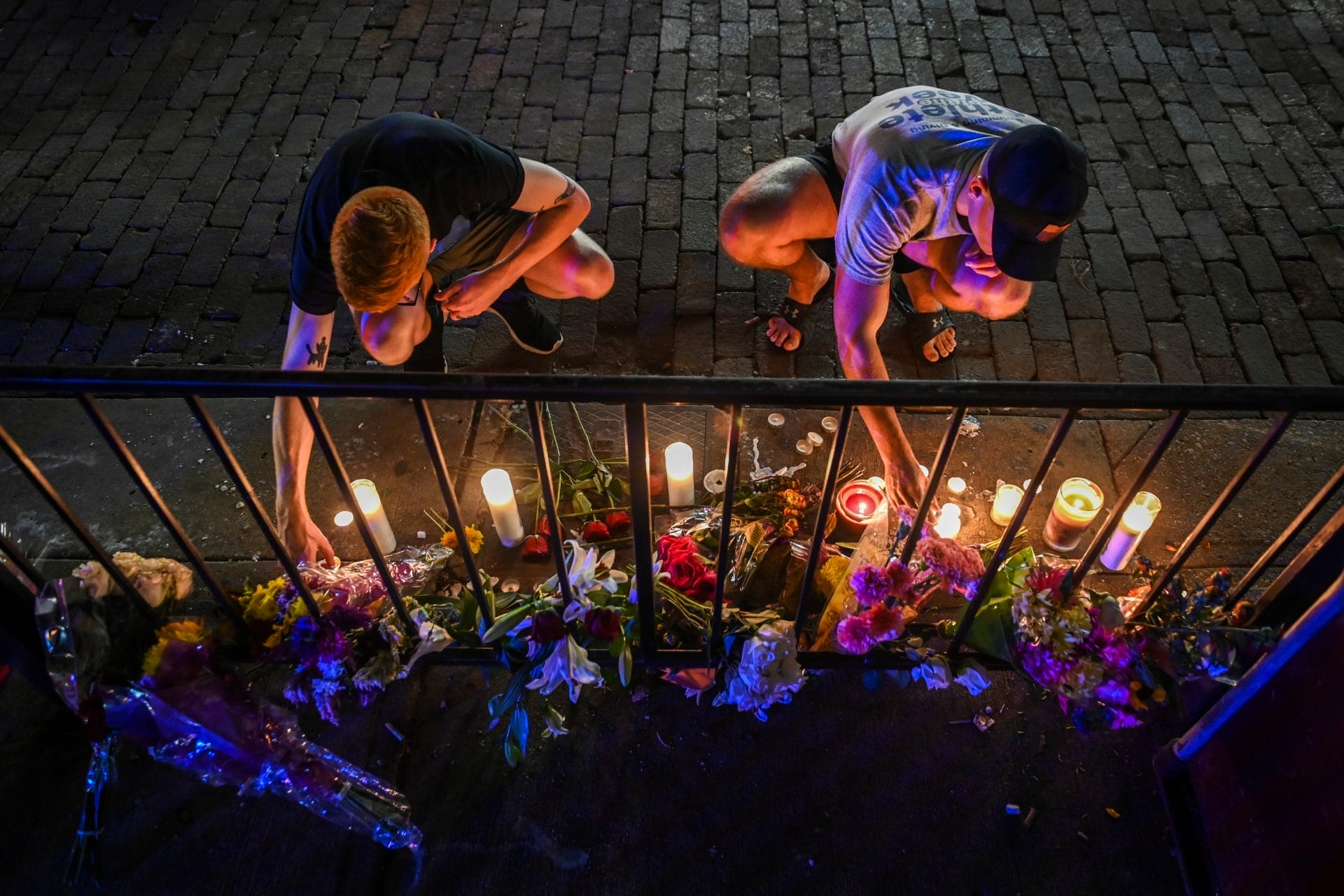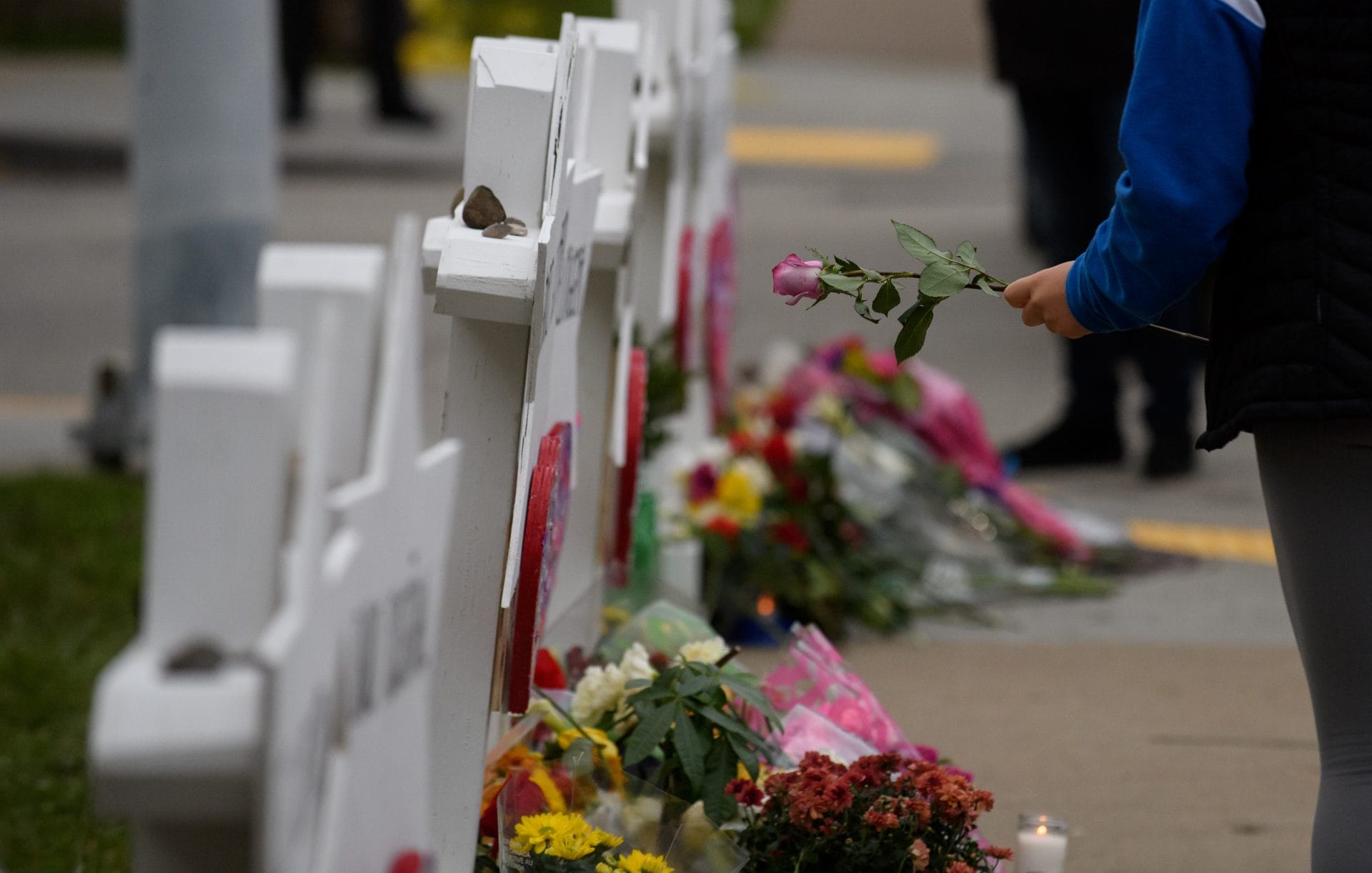
The combination of intimate partner violence and access to guns is an especially deadly mix.
Intimate partner violence impacts people of all backgrounds, and can include physical and emotional abuse, coercion, sexual assault, stalking, and threats.
It’s far too easy for individuals convicted of domestic abuse to access guns in this country—putting victims and survivors at tremendous risk. Women in the United States are 21 times more likely to be killed in a gun homicide than women in other high-income countries.
It is vitally important that we strengthen our nation’s gun laws and invest in thorough and equitable implementation to better protect those at risk of domestic violence.
You are not alone: If you or a loved one are experiencing domestic violence, please call the National Domestic Violence Hotline: 1-800-799-7233 or access help through their chat at thehotline.org.
Why This Matters
Christy’s husband was mentally and emotionally abusive to her and their son Wyland. There were no bruises, no black eyes, but after eight years of marriage, she became, in her words, “a shell of a person.”
Christy got a divorce from her abusive husband, hoping that putting space between them would protect her and Wyland. Unfortunately, her ex continued to manipulate them. If he wasn’t allowed to see his son, Christy’s ex and Wyland would both get upset.
Even though Christy’s ex had threatened to kill Wyland and Christy had a restraining order against him, he was still able to purchase a gun. In 2020, Christy’s ex shot and killed Wyland, before taking his own life. Wyland was ten years old.
For a long time, Christy didn’t recognize her experience as one of domestic violence. She shared her story in the hopes that it might inspire others in similar situations to get the help they need.
Perpetrators of domestic violence shouldn’t have access to guns. Until we change our gun laws, we still continue to send the message that the Second Amendment rights of domestic abusers are more important than the lives of victims and survivors.
GET THE FACTS
Gun violence is a complex problem, and while there’s no one-size-fits-all solution, we must act. Our reports bring you the latest cutting-edge research and analysis about strategies to end our country’s gun violence crisis at every level.
Learn More
Every year, more than 700 American women are shot to death by intimate partners—roughly one every 12 hours. Unrestricted firearm access makes domestic violence even more deadly. When an abuser has access to guns, his partner is five times more likely to be killed.
Firearms are used to commit more than half of all intimate partner homicides in the United States. Many mass shootings have a connection to domestic violence: in more than half of mass shootings, the shooter’s victims included an intimate partner. One analysis found that nearly a third of mass shooters had a history of domestic violence.
Guns are often used by domestic abusers as a tool to manipulate, control, and threaten. In fact, nearly one in ten US adults have experienced some type of non-fatal firearm abuse by an intimate partner, such as being shot or threatened with a firearm.
To protect survivors and victims from armed domestic abusers, we need to enact policies that prevent these abusers from having access to firearms, and then fully implement and enforce these policies. We also need to invest in safety planning resources, so that women experiencing domestic abuse can access support for themselves and their children.
THE FACTS
Source
Susan B. Sorenson and Rebecca A. Schut, “Nonfatal Gun Use in Intimate Partner Violence: A Systematic Review of the Literature,” Trauma, Violence, & Abuse 19, no. 4 (2018): 431–442.
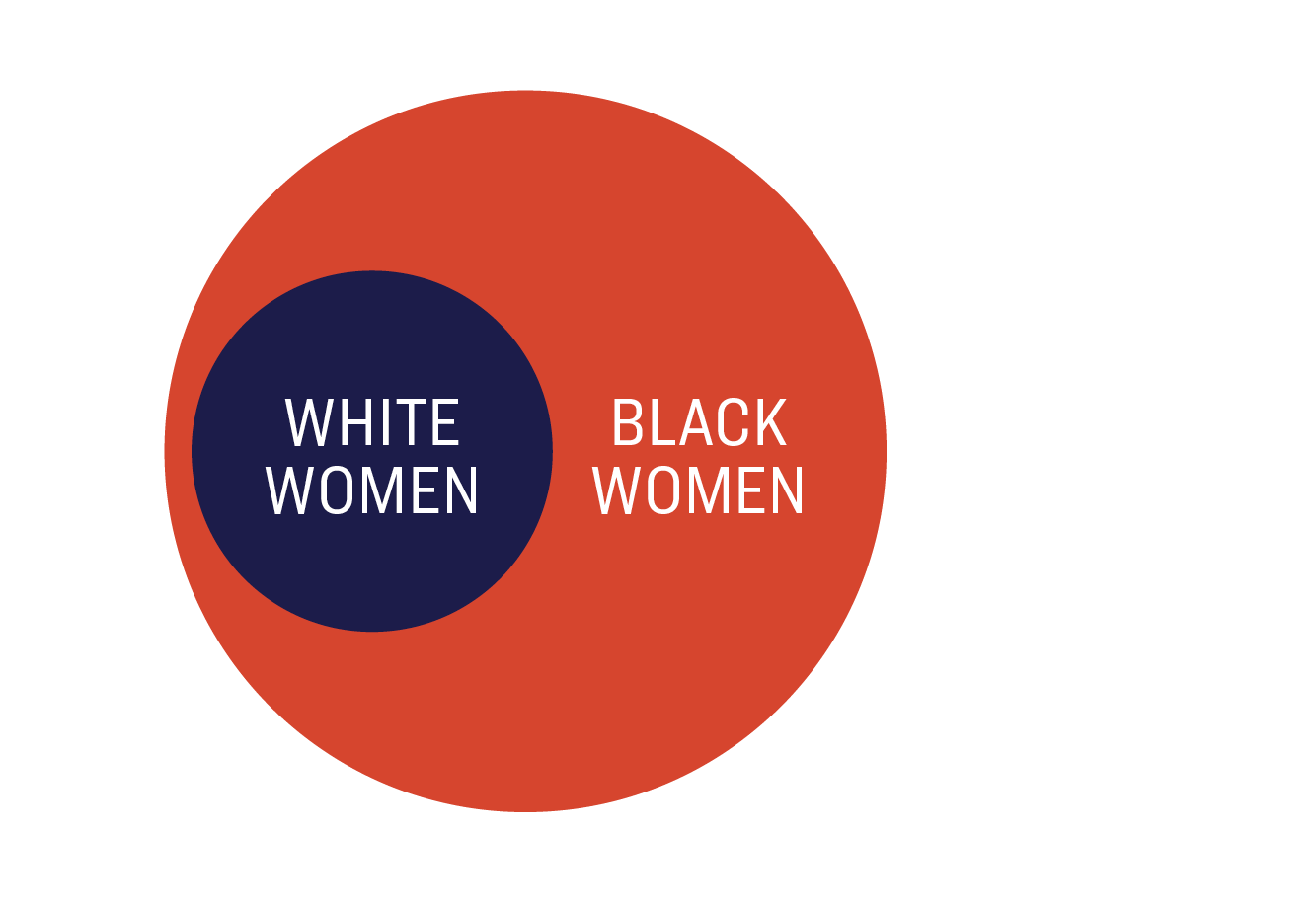
Racial disparities in domestic violence
Source
Federal Bureau of Investigation, Uniform Crime Reporting Program: Supplementary Homicide Reports (SHR), 2014–18.
Source
A. M. Zeoli, et al., “Analysis of the Strength of Legal Firearms Restrictions for Perpetrators of Domestic Violence and Their Associations With Intimate Partner Homicide,” American Journal of Epidemiology 187, no. 11 (2018): 2365–2371.
The Solution
For years, federal gun laws allowed individuals convicted of misdemeanor stalking and domestic violence to continue to access guns. These dangerous loopholes needlessly endangered victims and their families. States that restrict gun access among individuals subject to domestic violence restraining orders have seen a 13% reduction in firearm intimate partner homicides.
In July 2022, the Bipartisan Safer Communities Act (BSCA) strengthened existing federal law around domestic violence and firearms. The BSCA now prohibits gun purchases and possession for five years by an individual convicted of a misdemeanor crime of domestic violence against a victim with whom they have or had a “current or recent former dating relationship.”
This is an important step in the right direction, but it’s far from enough. Protecting the lives of vulnerable members of our society requires lawmakers to take further steps to prevent those who use violence, abuse, or stalking to control and harm partners don’t have easy access to guns.
Timely and safe relinquishment of firearms is another critical company of effective domestic violence policy. We must ensure that individuals subject to a firearm-prohibiting order surrender their firearms immediately and are unable to purchase guns.
Lastly, it’s vital that we provide adequate funding to community-based agencies that can help individuals and families create safety plans. These plans may include steps to store firearms more safely or outside the home, as well as other safety steps, which can reduce risk of harm.
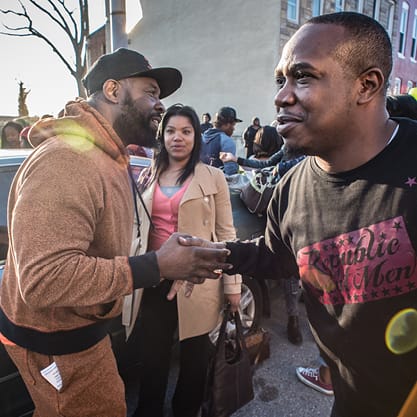
SPOTLIGHT
REDUCING RISK
Explore the options and strategies available for addressing specific types of gun violence and reducing the risk of a dangerous situation ending in tragedy.
Read More
What Giffords Is Doing
GIFFORDS was instrumental to the passage of the Bipartisan Safer Communities Act, which represented a meaningful step towards addressing the dangerous “boyfriend loophole.” In states around the country, we’ve advocated for and helped pass laws strengthening firearm prohibitions for domestic abusers, as well as universal background checks laws and effective relinquishment policies.
GIFFORDS researches and shares information about the intersection of firearms and domestic violence so that legal professionals, courts, advocates, violence prevention workers, healthcare providers, and the public understand the risks associated with firearms in domestic violence situations. We provide training and presentations for key stakeholders, and we facilitate convenings that bring community leaders and advocates together to identify resources and overcome challenges to create safer families and communities.
In February 2023, the Fifth Circuit Court of Appeals struck down a law prohibiting individuals subject to domestic violence restraining orders from possessing guns. This dangerous, extreme decision argues that because there was no historical analogue to domestic violence prohibitions in the 1770s that the law is unconstitutional. The Department of Justice asked the US Supreme Court to review, and GIFFORDS tirelessly advocated for the law to be upheld, rallying in support and filing an amicus brief urging the court to protect survivors. In June 2024, the Supreme Court agreed with us and upheld restrictions domestic violence offenders possessing guns.
Laws that prohibit domestic abusers from accessing guns are common sense and broadly popular. In a society awash with guns, we must do everything we can to ensure that those intending on harming their partners, former partners, or children can’t get their hands on deadly weapons.
SUPPORT GIFFORDS
We’re in this together. To build a safer America—one where children and parents in every neighborhood can learn, play, work, and worship without fear of gun violence—we need you standing beside us in this fight.


